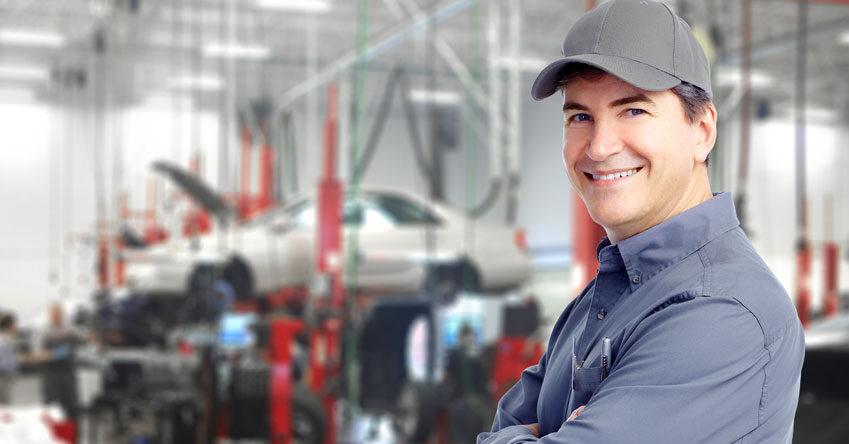
5 Tax Needs to Consider When Opening Your Auto Repair Shop
Opening an auto repair shop takes more than a simple passion for mechanics. It takes research and careful planning to turn that passion into a viable business. Across all industries, aspiring business owners often run into technical hurdles and red tape that have very little to do with the actual product or service. In fact, running a quality business depends on the operator’s ability to navigate the intricate labyrinth of regulations, tax codes, and mountains of paperwork needed to keep the operation running. Here we’ll explore a few essential tax needs that every auto repair shop needs to consider in order to run smoothly.
Be Organized
Complicated tax regulations are an unfortunate necessity for any business, and auto repair shops are no exception. Before opening your own shop you should hire a top-notch accountant and have some trusted legal advisers on hand. Their expertise will allow you to hire the right people so you can focus on building customer relationships.
It’s fairly easy to start your auto repair shop from your home garage before you have the capital to move to a more commercial space. However, this makes it all the more important that you keep your personal expenses and business expenses separate. Be sure to set up a business account with your bank, maintain strict records for invoicing your customers, and stay up-to-date on the relevant tax codes in your state.
It’s wise to keep copies of your tax records for at least a few years after filing to support your tax returns, so invest in a good file management system. Many shops manage their files with cloud storage systems at low cost and some still operate smoothly with traditional hard copy documents and a simple POS system. Either way, secure and organized file storage is key.
File Correctly and On Time
The penalties and interest incurred on late tax filings can kill a small business very quickly. Every employee or contractor performing a job for your business needs a W-2 or 1099 form filled out in a timely manner to maintain clear records and avoid tax penalties. The same goes for social security filings.
Your accountant or financial advisor can help you stay informed about current tax laws, which often change from year to year, to avoid any fines or audits.
Ask Your CPA About Deductions
In the US, most small businesses are eligible for a sizable list of tax deductions, meaning expenses that you can write off immediately to help lower your taxes. In the US tax code, this refers to Section 179 in particular. Things like office supplies, bank fees, business licenses and permits, inventory, operating equipment and more could be tax-deductible for your shop. Because the list is so extensive, your CPA needs as much information from you as possible about every expense you incur when setting up your shop.
Possible deductions that are specific to an auto repair shop include tools and equipment (some things may be eligible for a full cost deduction or a depreciated deduction depending on how new the item is), uniforms and clothing, vehicles (such as a tow truck or wrecker), licensing fees if you require a professional license to operate in your region, union dues and initiation fees, and even business liability insurance premiums. Travel expenses for business-related trips may also be tax-deductible. To reiterate, all of these expenses can be hard to keep track of and calculate properly, so that’s why we emphasize the importance of having a talented accountant on your side before you open your shop.
Reduce Tax Liability for the Future
As your business grows and money starts moving, you should consider ways to reduce your tax liability to stay profitable. To avoid higher taxes over time you can accelerate expenses (spend money on things that the business needs now instead of waiting until the next year) and defer income if you are a cash-basis taxpayer. To take advantage of those Section 179 deductions, you can invest in more expensive assets like heavy equipment and upgraded tools and inventory that you know you’ll need to provide better service in the future.
Consider opening an IRA or SEP account if you’re a sole proprietor and invest in a 401k. When funded, these retirement accounts will reduce your current tax liability and provide a future taxable income stream when your tax bracket could be lower in retirement.
Become an Expert in Sales and Labor Tax
Sales tax regulations vary from state to state so be aware of what they are in your region. Most mechanics and auto repair services provide the necessary parts to repair a vehicle or order them directly from the manufacturer. The process for passing the tax on to the customer is fairly simple. However, labor taxes may be more complicated. Along with sales tax, the state and local authorities determine what types of labor are taxed, and it’s up to the shop to file and pay those taxes correctly. Every state has an agency that handles the collection and administering of sales tax, so as the shop owner you’ll have to check the local agency and apply those tax codes to your invoicing and billing system.
Conclusion
Tax codes, while they can be complicated and hard to manage for a small business, work to the benefit of most auto repair shops in terms of the amount of deductions and initial investment it takes to start operating. For experienced mechanics, the most impactful thing you can do to open your own shop is to hire a good accountant and stay organized. Having a team of trusted advisers to help you navigate these tax concerns is the fastest path to profitability for your new shop.
Sources:
https://www.shopownermag.com/tax-strategies-for-the-auto-repair-shop/
https://work.chron.com/auto-mechanic-tax-deductions-21231.html
https://yourbusiness.azcentral.com/auto-repair-shops-charge-tax-labor-28419.html

